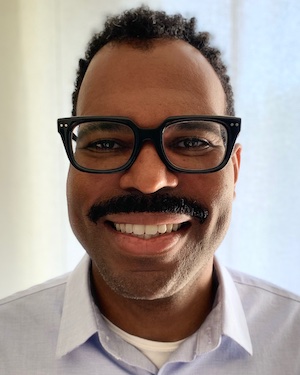An OT walks into a bar . . .

September 5, 2021
by Guy
In September about three years ago, I was bartending in Brooklyn, NY and a group of teachers, some regulars of mine, walked into the bar with their new colleague, an occupational therapist. This OT had just made the switch to occupational therapy from another career. Just like I was attempting to do! At this point, I had started the process of switching careers, I had just finished taking my first pre-requisite class for OT grad school at a local community college, and I had not really had the chance to have any long in-depth conversations with anyone who had gone back to school to be an occupational therapist. In many ways I was still in the dark not only about the profession but what exactly I had got myself into — pre-requisites, needing volunteer hours, grad school applications — what? Also, I had been wanting to get a chance to do some observation/volunteer work in adult inpatient acute settings and had been having difficulties securing any place that would allow me to do so. Fortunately, this occupational therapist turned out to be the friendliest, most helpful person. They broke down the next steps I would need to take to achieve my short term and long-term goals — great activity analysis. They then connected me to a volunteer opportunity at the local VA hospital in Brooklyn, where I first heard about the USC occupational therapy program (Thanks Anita K., USC Class of 2012) and learned so much about the day to day of an occupational therapist at the VA.
Over the next year whenever that occupational therapist walked into the bar, they would always give me what I now know was invaluable information about the profession of occupational therapy. To this day, I credit them for not only giving me a very clear idea of their own experience of changing careers and becoming an occupational therapist, but more importantly I am grateful for getting a first-hand view of what my future path might entail. Through interacting with this occupational therapist, I came to realize that it wasn’t crazy to be going back to school after being out of school for so long and that becoming an occupational therapist was what I thought it would be and more. In the end, I credit those conversations and that opportunity at the VA for helping me to learn so much about the profession and providing me with a fuller understanding of what I had got myself into. Before that occupational therapist walked into the bar, I thought I knew why I was making this career change but didn’t quite know how. I was becoming an OT because I wanted to work one on one with people to do those things that are important and meaningful to their lives, and I felt I could not continue to do the work I had been doing. Also, I have seen the beauty and impact of occupational therapy in action. I witnessed occupational therapists help students find the joy of being a student, and I have seen the transformative effect of occupational therapy in helping people like my proud mother, who had Parkinson’s, to maintain a sense of dignity while adapting to living with a degenerative disease. Despite this knowledge my ability to interact with an occupational therapist helped me to clarify why and also how I would make this career change. Being able to have conversations with an occupational therapist helped me to go into this new career with a sense of purpose and understanding which I carry with me to this day.
Thank you Sadie, that OT that walked into the bar, and to all of the occupational therapists: Maurice, Anita, Leah, Heather, Elena, Ryan, and so many who took the time to talk to me about how to become an occupational therapist. You not only helped to clarify why I was becoming an occupational therapist but helped to get the process started. I wouldn’t be here in my second year of graduate school without your freely given insight, advice, and much needed guidance.
⋯
Next by tag Admissions ⟩ What are OS/OT? ⟩
⋯





